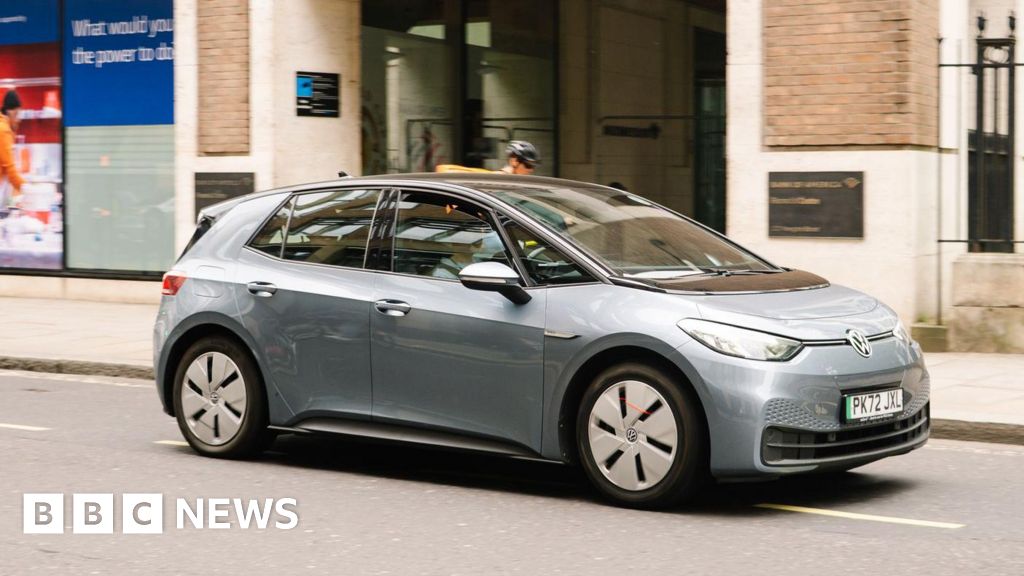German car making giant Volkswagen (VW) has introduced a subscription for UK customers wanting to increase the power of some of its electric cars.
Those who buy an eligible car in its ID.3 range can choose to pay extra if they want to unlock the full power of the engine inside the vehicle.
VW says the “optional power upgrade” will cost £16.50 per month or £165 annually - or people can choose to pay £649 for a lifetime subscription.



Not directed at OP, but just in general about this story, but for the number of times I feel I’ve seen this story posted in the last few days, I have some critiques and additional info that doesn’t seem provided by these articles being shared. For anyone else curious:
This appears to be old news. I don’t follow electric cars because I live in a NIMBY complex where we will not be having means to have any kind of charging in the foreseeable future. Looking this up to see what exactly is being paywalled by VW, I see forum posts from at least as far back as last August.
What is being limited is the electric motor. Basic is 150 kW, the optional is 170 kw of power. People on the id3 forums say this is essentially taking the car from the electric version of 205 HP to 231 HP.
You can do a one month free trial, an annual subscription, or a lifetime purchase, but I didn’t see if this was tied to the purchaser or the car itself. I’m not in UK so I don’t care enough to look that up.
People on the forum are also saying some leases bar the upgrade and that the insurers there wish to know if the car is “upgraded” and there is a slight premium for having it, so some may wish to forgo the added power rating and associated fees and premiums.
I have no real opinion as I have no skin in the EV game, but I am generally anti-subscription, especially for what sounds like a software setting.
I hope this helps anyone else trying to see what this story is all about. Again, no shade on the people sharing this, I just wish some articles/posts would have a little more context for those less familiar as this community is generalist and not a car/EV one where we should probably expectedly be more versed in the topic.
The upgrade stays with the car.
Thank you! That at least makes it better than most subscriptions since it should add some value to resale if it’s transferrable. The buy it outright price pays off vs the sub in about 4 years too, which isn’t too bad either.
Tesla has also been doing this for years. My 2019 Model 3 has an upgrade option for the acceleration. It’s a one time payment, but Tesla’s no stranger to the subscription model. They offer monthly fees for the upgraded “self-driving” package and occasionally give me a free trial period to try it out. I’ve had enough phantom braking incidents with the stock version that I’ll never use it.
ETA: Also, any upgrades I get for my car will not transfer if I sell it. I’m guessing that’s a big incentive for Volkswagen and the like to jump on board for this shitty practice.
Good points. I do feel like I remember that the Full Self Driving was a paid upgrade and I’ve seen enough stories of Tesla locking people out of things via update. For something like FSD, does it throw you off any driving it after the trial ends, like do you get reliant on some of the upgraded features and then forget ever when they get turned back off? Having something as a potatnetial aid or safety feature that is potentially sometimes there and sometimes not seems a bit weird. Something like VW’s speed limiter would just make you slower, but if you get used to the car steering/braking and then another day it doesn’t, that seems a bit questionable. You sound like you pay attention as you dont like it especially anyway, but just for your average Joe.
FSD (and stock Autopilot, for that matter) are systems you engage while driving, similar to Cruise Control. I feel like the capabilities are different enough that the average driver wouldn’t get too used to FSD over a couple week period.
For me as someone who drives a decent amount of country backroads, I’m wondering whether the stock Autopilot obeys stop signs. I know it didn’t when I first got the car, and I wasn’t in a hurry to test if they added the functionality. I could see maybe someone renting a Tesla with FSD, getting used to it, then not realizing that the next Tesla they rented without FSD was going to blow through a stop sign.
That makes sense. Thank you for explaining it. I’ve only played with Hyundai’s and Subaru’s smart cruise and lane assist, and it doesn’t take long to know it’s nothing like what I’d picture FSD to be. My car is a 2008, so I’ve only got basic CC.